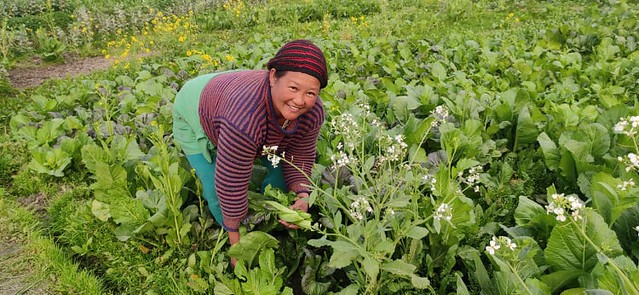Capacity development/project
Climate change is emerging as a major threat on agriculture, food security, and livelihood of millions of people around the world (IPCC, 2014). Nepal being one of the developing countries of South Asia is expected to be hardest hit by climate change with a decrease in agricultural productivity between 15-35 percent. In Nepal, more than 65 percent of its population is dependent on agriculture for their livelihood and almost 80 percent of the households are involved in agriculture, which generates one-third of the total Gross Domestic Product (GDP) (CBS 2013). Therefore, strengthening agricultural production systems is a fundamental means of improving income and reducing poverty in Nepal. Likewise, the increasing pattern of outmigration of the male population from the village and semi-urban areas to urban or abroad for better opportunities is increasingly feminizing the agricultural sector of Nepal. Nepali women are faced with the burden of both farming and looking after their household chores. As a result, they are increasingly adapting to less intensive farming practices as well as abandoning their agricultural land. Hence, this project aims at addressing these both problems of Nepal by supporting women smallholder farmers from Kageshwori Manohara Municipality by making them familiar with Climate Smart Agriculture technologies. The women farmers with small landholdings will be introduced and demonstrated simple adaptation technologies which would help them improve their land’s productivity, reduce their vulnerability to the environmental risks and enhance their resilience to climate change and hence improve their livelihood.
Photographs of Project Activities:
Project Site
Kageshwori Manohara Municipality-6, Mulpani
Implementing Partners
The Small Earth Nepal
Karesabari Agricultural Co-operative
Funding Agency
The Canada Fund for Local Initiatives (CFLI) under the Canadian Embassy or High Commission
Project Duration
6 months starting from September 2019






